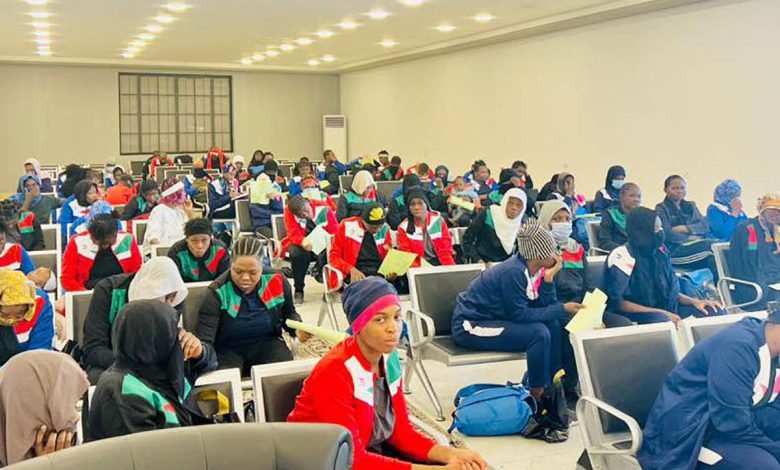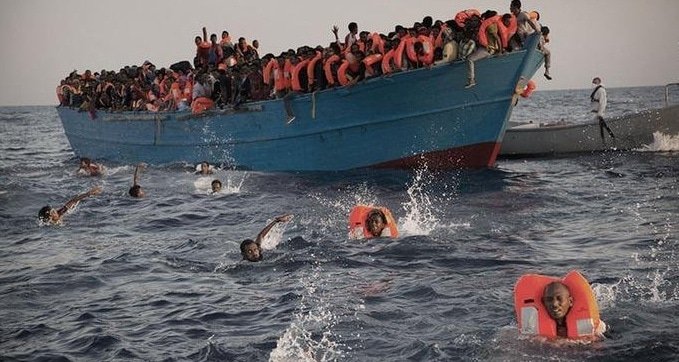Libyan authorities have deported 80 Nigerian migrants held in detention centres across the country as part of ongoing efforts to tackle irregular migration and ease overcrowding in their facilities.
The Department for Combating Illegal Migration (DCIM), in collaboration with the Nigerian Consulate in Tripoli, coordinated the repatriation through Mitiga International Airport on Wednesday.
According to Migrant Rescue Watch, an organisation that monitors migrant welfare and human rights in Libya, the deportation followed judicial directives issued by the Libyan Judicial Police.
In a post on X, the group stated that the Judicial Police, acting on orders from the Public Prosecutor’s Office, had transferred a group of undocumented Nigerian women to DCIM custody in Tripoli, where they were served judicial deportation orders before being sent home.
The organisation added that the latest batch of deportees included those previously held under similar judicial instructions.
It noted, “#Libya 11.11.25 – DCIM, with Nigerian consular support, repatriated 80 migrants of Nigerian nationality via Mitiga Int. Airport in Tripoli. The group includes migrants transferred by the Judicial Police who were served with judicial deportation orders.”
The development marks Libya’s renewed crackdown on irregular migration in partnership with diplomatic missions, aimed at reducing overcrowding and improving human rights conditions in its detention facilities.









